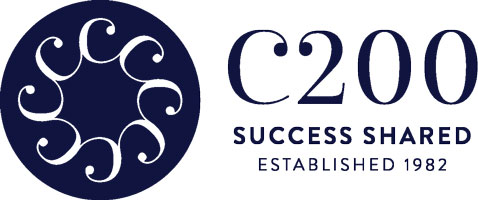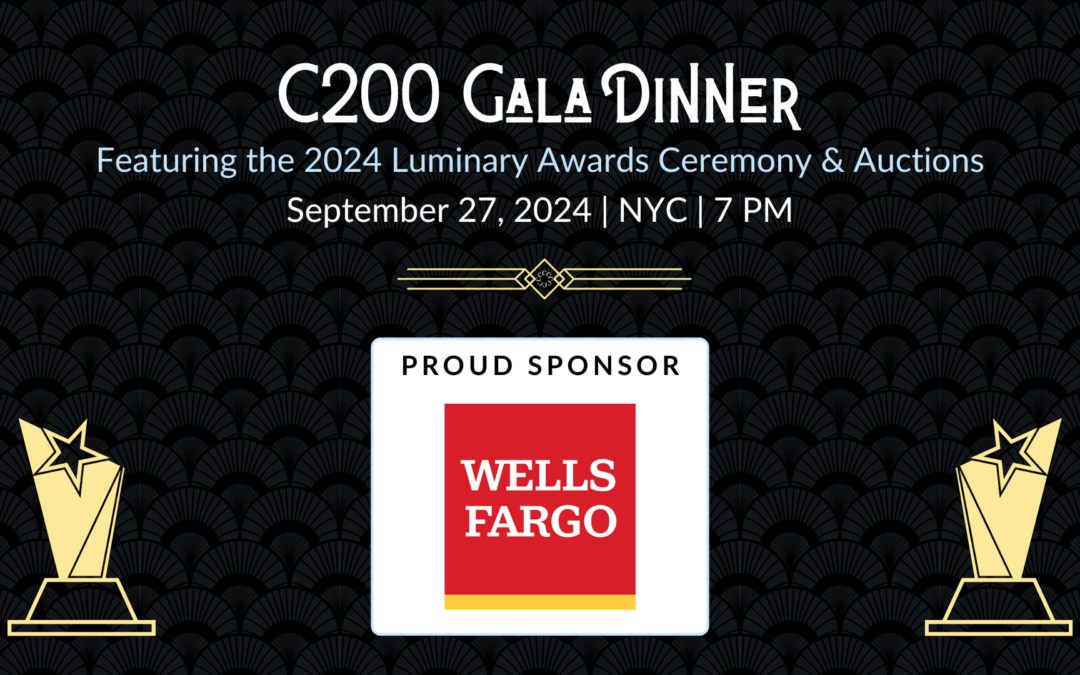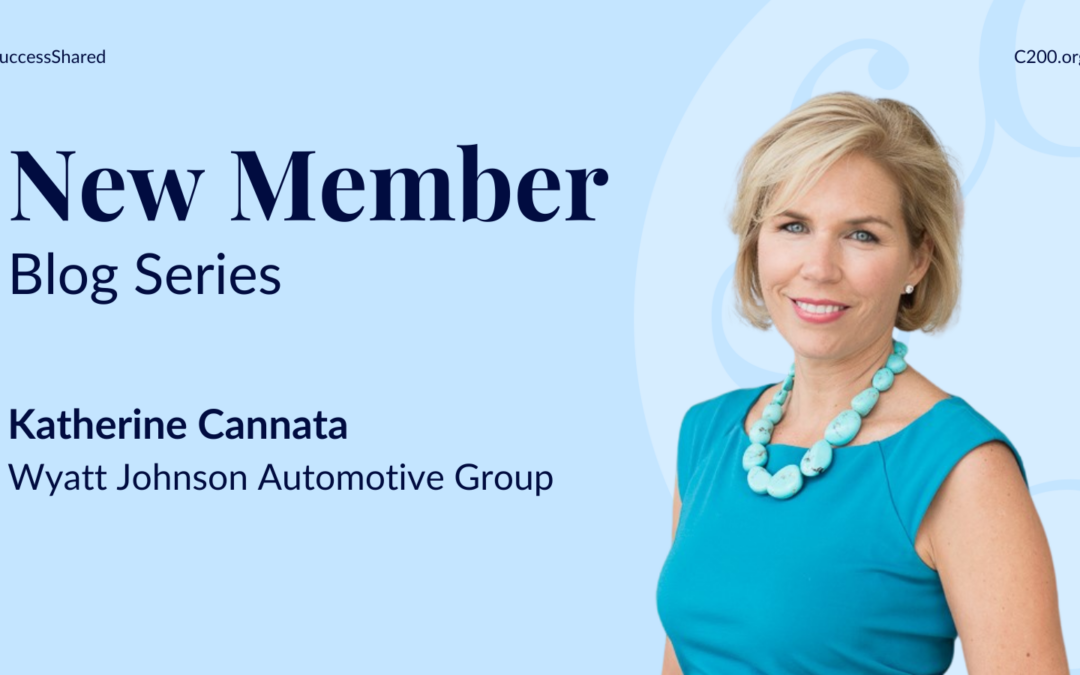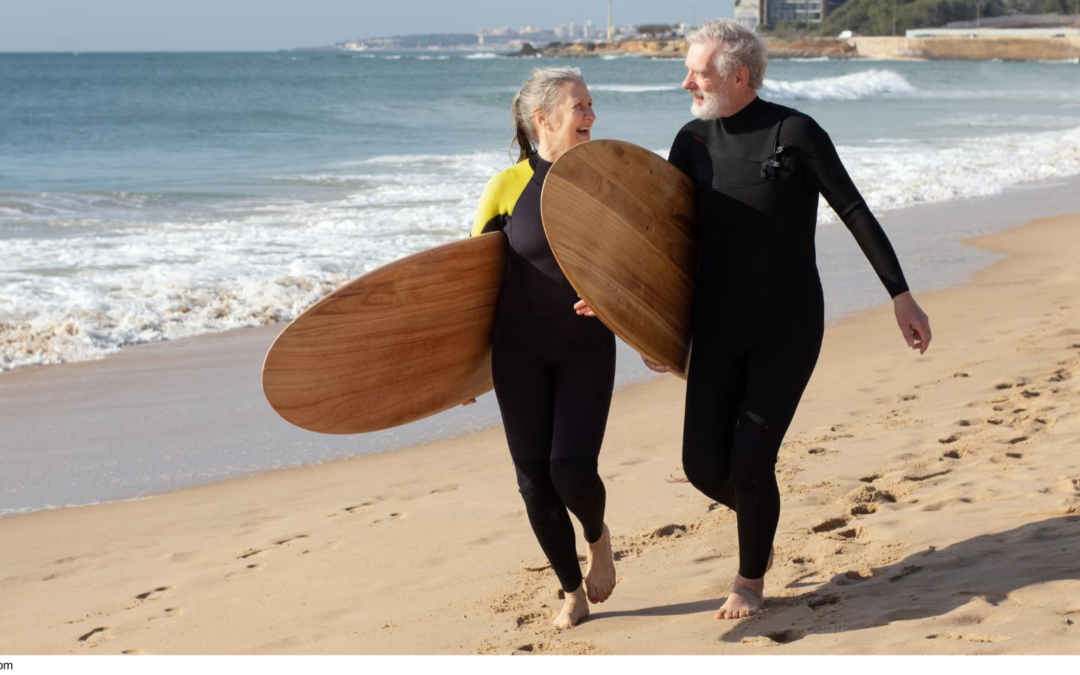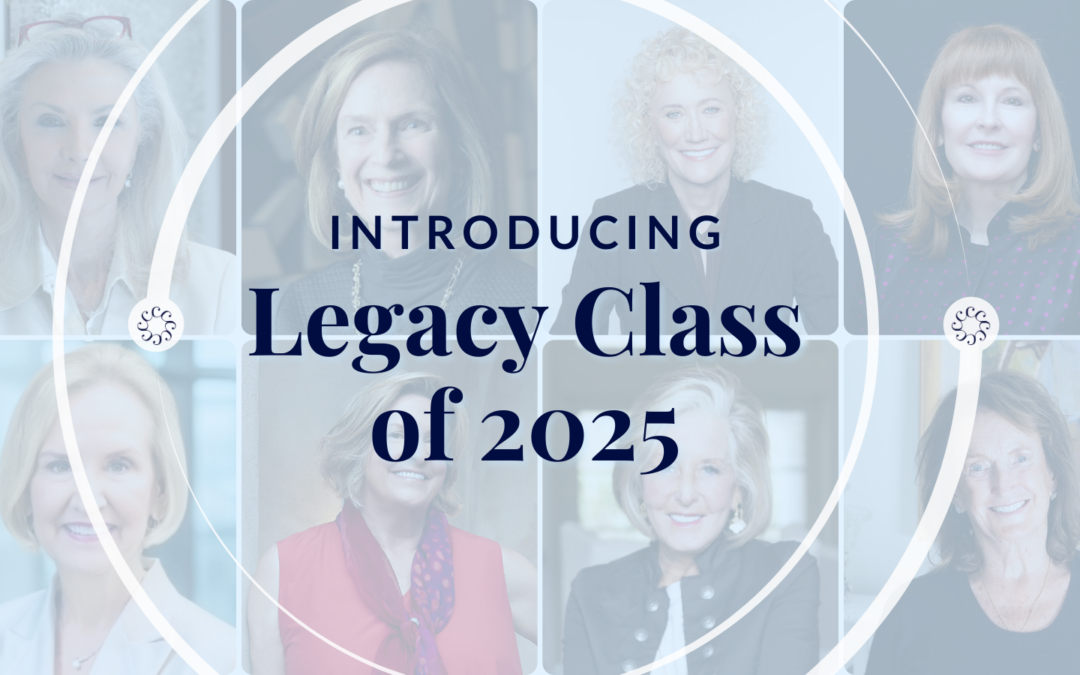
Celebrating the C200 Legacy Class of 2025
C200 wants to congratulate and honor our 2025 Legacy Class!
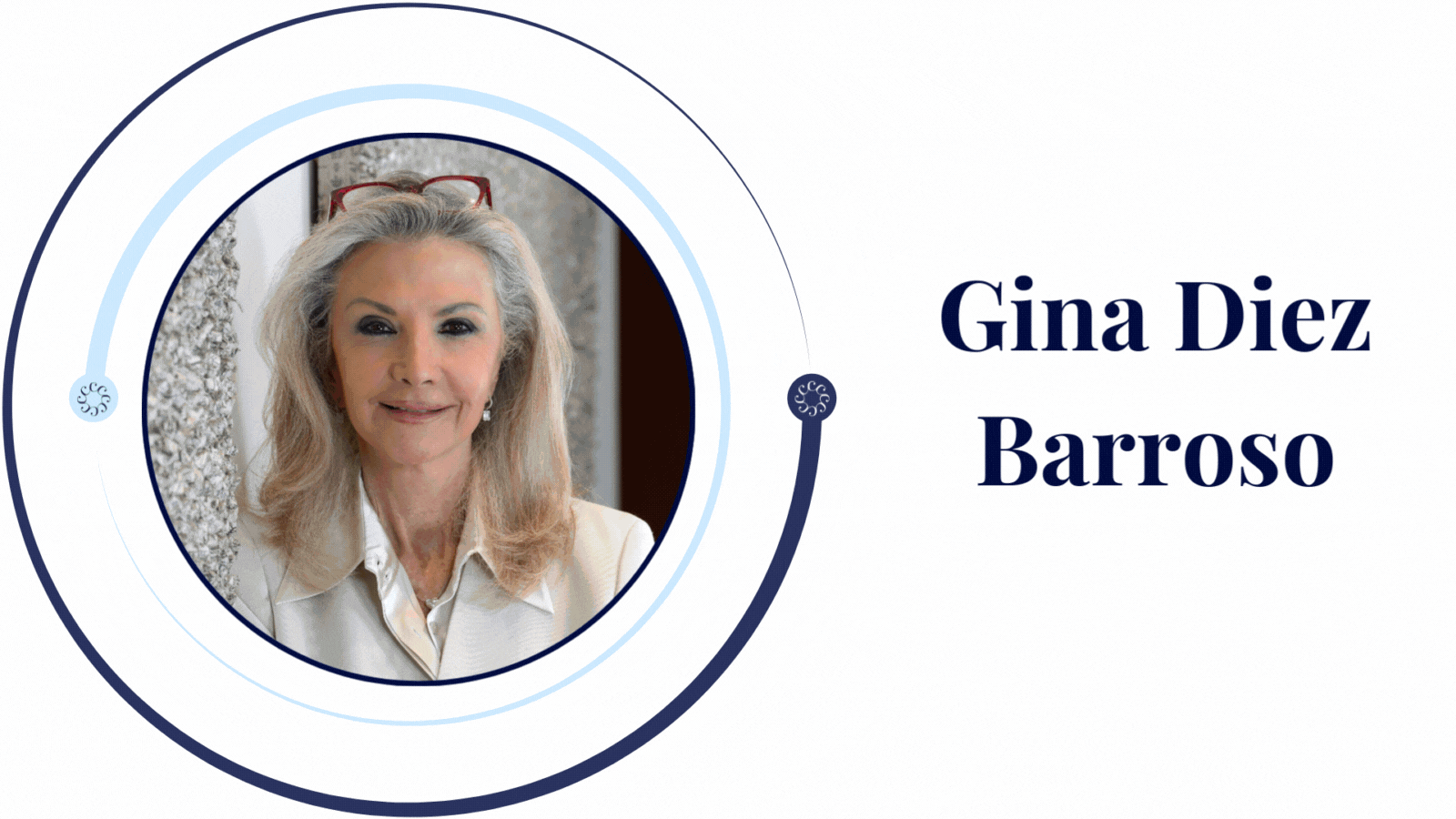
Gina Diez Barroso | Deborah A. McDermott | Peg Wyant | Sue Burnett | Susan McLaughlin | Jan Babiak | Dorrit J. Bern | Cordia W. Harrington
Legacy Members are individuals who have been a C200 member for 25+ years. The 2025 Legacy Class joined C200 in 2000 and will be inducted into the ranks of our Legacy Members starting January 1, 2025.
Over 60 of our 440+ members are among our Legacy status. We are grateful for our rich history as an organization founded in 1982; many of the women who founded C200 are still active members today. Our Legacy Members are shining examples of the long-term power and impact C200 has had over our 40+ year history, and the progress women in business at large continue to experience and fight for today. Without the influence of our Legacy Members, current and future women in business would not have so many opportunities to advance in their careers as they do today.
Gina Diez Barroso
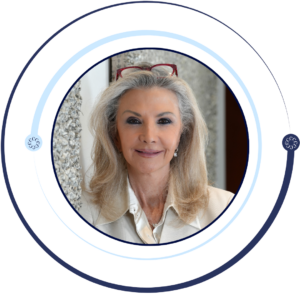 Gina Diez Barroso is a businesswoman and philanthropist focused in developing projects in design, innovation and education. Gina is Founder of Grupo Diarq, a very prestigious design and real estate development company with offices in Mexico and the United States. Gina is also founder and president of CENTRO, Mexico’s first university dedicated to Design, Media, and Technology with a strong emphasis in business and entrepreneurship. She is also Founder of Diez Company, the leading commercial and residential lighting firm with operations in Mexico, Spain, and the United States, with a portfolio that includes the leading luxury hotel brands in the world.
Gina Diez Barroso is a businesswoman and philanthropist focused in developing projects in design, innovation and education. Gina is Founder of Grupo Diarq, a very prestigious design and real estate development company with offices in Mexico and the United States. Gina is also founder and president of CENTRO, Mexico’s first university dedicated to Design, Media, and Technology with a strong emphasis in business and entrepreneurship. She is also Founder of Diez Company, the leading commercial and residential lighting firm with operations in Mexico, Spain, and the United States, with a portfolio that includes the leading luxury hotel brands in the world.
Gina’s latest project, Dalia Empower, a global education platform ecosystem powered by AI, provides women with the unique methodology and tools to transform their thinking and succeed in their personal and professional growth by mastering “life skills.”
Gina serves as an independent board member and advisor to numerous organizations, including the Global Board of Santander Bank the Mexican Stock Exchange, Laurel Strategies, and ASCOA, and represents Mexico in the G20 Women’s Initiative. Gina is an internationally recognized speaker and has been honored with several awards, including the Gold Medal from the Council of the Americas in New York, the EY National Entrepreneur of the Year 2023, EY World Entrepreneur Of The Year competition in Monaco 2024, and was recently named Mexico’s Most Powerful Woman 2024 by Forbes.
In her philanthropic work, Gina has established three non-profit organizations: Diarq Foundation, focused on eradicating violence against women and children; CENTRO Foundation, which grants scholarship to students on creative careers; and Tatis Foundation, dedicated to improving the quality of life for people with disabilities.
C200 has been a cornerstone in my journey. Over the past 25 years, it has connected me with a powerful network of friends, who have not only inspired me but also challenged me to grow as a leader. The collective wisdom and support from this community have been instrumental in pushing boundaries.
One piece of advice I would give to women leaders is to trust your instincts and own your decisions with confidence. Your authenticity is your strength. Don’t be afraid to embrace it and let it guide you. Surround yourself with people who believe in you and push you to never underestimate the power of community and the power within you.
Deborah A. McDermott
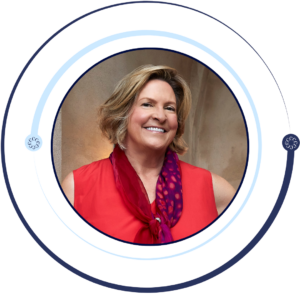 Deb McDermott serves as CEO of Standard Media Group LLC. She has a 25-plus year career leading broadcast groups- including COO of Media General and CEO-President of Young Broadcasting. As CEO, she spearheaded Young’s successful mergers with Media General and LIN Media. Ultimately, overseeing the combined company’s more than 70 television stations. Deb currently serves as Chair of the Board of Directors of MediaCo Holding Inc.
Deb McDermott serves as CEO of Standard Media Group LLC. She has a 25-plus year career leading broadcast groups- including COO of Media General and CEO-President of Young Broadcasting. As CEO, she spearheaded Young’s successful mergers with Media General and LIN Media. Ultimately, overseeing the combined company’s more than 70 television stations. Deb currently serves as Chair of the Board of Directors of MediaCo Holding Inc.
Among her many accomplishments, Ms. McDermott was inducted into the Broadcasting & Cable Hall of Fame in 2013 and the Library of American Broadcasting Foundation’s Giants of Broadcasting and Electronics Arts award in 2022. She currently serves on the ABC Board of Governors, the Board of Directors for Television Bureau of Advertising, National Association of Broadcasters and the International Radio and Television Society. She is also a member of C200 and CEO.org. Previously, Ms. McDermott served on the Board of Directors for the Country Music Association and Chair of the National Association of Television Program Executives (NATPE).
Stay connected to your women counterparts and reach out when the going gets tough…or give back when others need it! It will lift you up… Enjoy the Ride!
The women of C200 have played a wonderful role in my well being as a leader. At the lowest points of my career, they were there for me…Cordia Harrington, Nancy Peterson, Jan Babiak and many other women who just reached out. At a key point in my career with the public company I was running on the verge of bankruptcy, my husband seriously ill and trying to be a good mom to my 2 young boys….my husband forced me to attend a C200 retreat in Sun Valley. What did I receive from these women…clarity, strength, love. I went home with solutions. I will never forget the impact these women have made on my life, my career and my family…this is why C200 is more than a bunch of women talking business… we are women investing in other women.
Peg Wyant
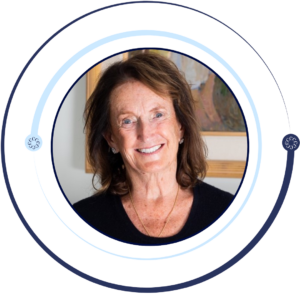 The first female executive in the Fortune 500 after starting in Procter & Gamble’s iconic brand management and recently published author of One Red Shoe, Peg is a pioneering, national leader for gender equality in corporate America with a demonstrated history of working successfully in the real estate, consumer goods, marketing, consulting and venture capital industries.
The first female executive in the Fortune 500 after starting in Procter & Gamble’s iconic brand management and recently published author of One Red Shoe, Peg is a pioneering, national leader for gender equality in corporate America with a demonstrated history of working successfully in the real estate, consumer goods, marketing, consulting and venture capital industries.
Sue Burnett
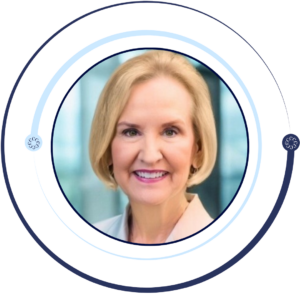 Sue Burnett is the founder and president of Burnett Specialists (Houston, Austin, El Paso, and San Antonio), and Choice Specialists (Dallas). Her 50-year-old company is ranked as the Second Largest Employee-Owned Staffing U.S. Firm by NCEO, 5th Top Woman-Owned Business and #1 Largest Placement and #6 Largest Staffing Firm by the Houston Business Journal. Burnett Specialists was named one of the Top 100 Recruitment and Staffing firms in the U.S. by Forbes magazine. The Better Business Bureau has awarded Burnett the Pinnacle award multiple times.
Sue Burnett is the founder and president of Burnett Specialists (Houston, Austin, El Paso, and San Antonio), and Choice Specialists (Dallas). Her 50-year-old company is ranked as the Second Largest Employee-Owned Staffing U.S. Firm by NCEO, 5th Top Woman-Owned Business and #1 Largest Placement and #6 Largest Staffing Firm by the Houston Business Journal. Burnett Specialists was named one of the Top 100 Recruitment and Staffing firms in the U.S. by Forbes magazine. The Better Business Bureau has awarded Burnett the Pinnacle award multiple times.
Sue’s honors include: HBJ Lifetime Achievement Award for Most Admired CEOS, Texas Businesswoman of the Year, Ernst & Young’s Entrepreneur of the Year, NAWBO’s Woman Business Owner of the Year, WBEA’s Business Entrepreneur of the Year, Houston Business Journal’s Most Admired CEO, Most Powerful Woman Award by the National Diversity Council, Staffing Industry’s Top 100, Women’s Enterprise’s Woman of Excellence, Texas Diversity Council Woman of the Year and the Jr. Achievement’s Hall of Fame Award.
The University of Arkansas named Sue as a Distinguished Alum, a Tower of Old Main, and into the Journalism Hall of Fame. Sue and her husband Rusty were the donors for the “Sue Walk Burnett Journalism and Media Center” at the University of Arkansas.
Sue serves on the Boards of Directors of Junior Achievement, American Cancer Society, Houston Women’s Chamber of Commerce, Better Business Bureau, and Goodwill Industries. She was the founder of the Best Places to Work awards in Houston, Austin, Dallas & San Antonio.
The best years of my career have been from the age of 50-78. I am still working and enjoying it more than ever. Don’t retire too early! Your best years are still ahead!
C200 has been a life-changing experience for me! I have made some of my closest friends in Houston and other cities through C200. Also, the summer weekends away and the conferences have all been memorable and unique experiences that I would not have had. I truly love C200!
Susan McLaughlin
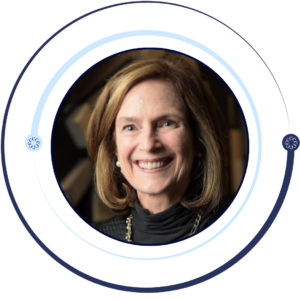 Susan McLaughlin is the Managing Partner of Meraki Search Group, a high end, retained executive search firm. She has earned her executive search credentials through engagements on both sides of the equation. She experienced the process from the perspective of one who, as Chief Operating Officer of AGL Resources, President of Bellsouth’s Consumer Services business, and in executive positions at Citibank and Eastman Kodak, filled numerous top executive operating positions.
Susan McLaughlin is the Managing Partner of Meraki Search Group, a high end, retained executive search firm. She has earned her executive search credentials through engagements on both sides of the equation. She experienced the process from the perspective of one who, as Chief Operating Officer of AGL Resources, President of Bellsouth’s Consumer Services business, and in executive positions at Citibank and Eastman Kodak, filled numerous top executive operating positions.
Armed with knowledge from her hands-on experiences transitioning to executive search was a natural career progression. It is her unique understanding of client needs and what motivates prospective senior-level candidates to consider new challenges that gives her an ability to attract the best professional talent for her clients. A keen appreciation of the cultural fit between the client and potential candidate is a crucial factor in finding the right match. Her track record of success is revealed in an extensive list of superior executive placements in the FinTech/financial services, business services, healthcare and life sciences.
Sue’s prior Board of Directors roles have included Target Corporation, Delphi Automotive, nTelos Wireless, Blue Cross/Blue Shield of Rochester, Federal Reserve Bank of New York, Spelman College, and Mary Baldwin University. She has also served on the Board of Atlanta-based Prime Revenue, where for her role as Lead Director during a capital raise and ownership transition, she earned an Atlanta Business Chronicle/NACD Director of the Year award in 2015.
For many years, Sue has been active in C200 (formerly Committee of 200), a global association of top female executives and entrepreneurs who promote and foster the advancement of women in business leadership. She recently completed her term as the organization’s Chair. She is also a member of the International Women’s Forum, Women Corporate Directors, and the National Association of Corporate Directors.
In addition, she is a member of Business Executives for National Security, a nonpartisan group of senior industry leaders who support initiatives to enhance national security.
I recall feeling like I was walking into a warm embrace at the opening reception the first time I attended the annual conference. The room was full of accomplished, gracious, and colorful women, many of whom have become dear friends and advisors. I hope that each new member has the same experience.
I am so aware of the women who came before me, whose efforts began clearing a path for other women to executive leadership, board, and other positions of power. We have an obligation to keep those efforts going – sponsoring, mentoring, and referring the outstanding pool of female leaders around us – and having fun doing so.
Jan Babiak
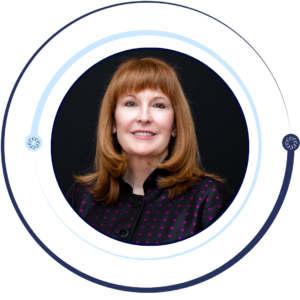 Jan Babiak spent 28 years with EY with the last 20 based in London before starting her ‘portfolio board career’. At EY, her roles included board level and global P&L leadership roles over Technology Security & Risk Services; Regulatory & Public Policy; and Climate Change & Sustainability and related ESG reporting while serving on the firm’s most prestigious clients in financial services, technology, energy, media, transportation, retail, and more.
Jan Babiak spent 28 years with EY with the last 20 based in London before starting her ‘portfolio board career’. At EY, her roles included board level and global P&L leadership roles over Technology Security & Risk Services; Regulatory & Public Policy; and Climate Change & Sustainability and related ESG reporting while serving on the firm’s most prestigious clients in financial services, technology, energy, media, transportation, retail, and more.
Jan’s board service draws on her broad P&L leadership experience with a focus on companies that have complex global systems and structures with market competitive, cutting-edge digital platforms and related opportunities and exposures. Her role also includes providing experience and insight into how digital and legacy technologies impact M&A, business transformation, cyber risk, cyber security, strategy, operations, and stakeholder engagement from customers to suppliers to the investor community.
In 2012, she joined the boards of Walgreens and the Bank of Montreal. She sits on the Nomination and Governance Committee and chairs the Audit and Conduct Review Committee for Bank of Montreal, the eighth largest bank in North America with assets of over one trillion dollars and significant operations in Canada and the USA. Following a strategic merger at the end of 2014, Walgreens is listed as Walgreens Boots Alliance, Inc. and has annual global revenues exceeding $135 billion from retail, wholesale, distribution, and its strong digital presence in the pharmacy sector. Jan is Chair of the Audit Committee as well as a Finance Committee member. In 2016, she joined the board of GHD Group, an employee-owned, privately held, Australian-based engineering, architecture, and environmental consulting firm with 200 offices operating in more than 90 countries where she serves as Lead Independent Director. She also serves the board of Boldyn Networks, a London headquartered CPPIB owned global shared network infrastructure provider. She terms off GHD in November 2024 and the Audit Committee chair role at Bank of Montreal next year and is actively seeking replacement board roles.
Her prior board service includes Euromoney Institutional Investors plc, a UK-based FTSE 250 company, from 2017 until its sale to PE in late 2022. She was Senior Independent Director and sat on the Nominations and the Remuneration Committees. She also served on the board of the Royal Mail during its successful IPO from full UK government ownership directly into the FTSE 100. From 2017 to 2021, she served as board member and Audit Committee Chair for GlobalLogic, a private equity owned digital product development services company that helps businesses design, build, and deliver their next-generation products and digital experiences until its acquisition by Hitachi for $9.6 billion. From 2010 until its sale in August 2012, she was a board member and Audit Committee Chair for Logica plc, a then UK headquartered FTSE 250 publicly traded technology company.
In 2024, Corporate Board Member Magazine included her in the Top 20 Value Creating Directors in America. In 2017, she was named by NACD Directorship magazine as one of the most influential people in the boardroom community. Agenda, a Financial Times publication for board members, named her in their ‘International 100: Top Board Candidates with Global Skills’ and the Confederation of British Industry named her as their inaugural First Woman of Technology. She was lead author of a then definitive book on board level oversight of IT and cybersecurity ‘Defending the Digital Frontier: Practical Security for Management’ and is published on sustainability, cyber security, governance, technology, digital transformation, and diversity.
She holds a BBA in Accounting, an MBA, and a US CPA license. She is also a current Certified Information Security Manager (CISM), a Certified Information Systems Auditor (CISA), and a British Chartered Accountant (FCA). She sits on the Advisory Board of the Nashville Chapter of NACD and is co-founder of the Tennessee Chapter of Women Corporate Directors. From 2011 until 2019 when she termed out, she served the Institute of Chartered Accountants in England and Wales as a Council Member.
Jan has dual US and UK citizenship. She maintains strong UK business ties and a London residence with a primary residence in Nashville, Tennessee with its central US location and multi-airline services providing convenient and frequent flight options to travel anywhere in the world.
If you don’t feel valued in a role more often than occasionally, find or borrow the courage you need to make a bold and dramatic change as soon as possible.
Wherever I am in my career or life, C200 has given me a rich tapestry of blessings through the time, talent, camaraderie, support, challenge, insight, wisdom, and fun provided by both new and longstanding female friends—my family ‘by say rather than DNA’.
Dorrit J. Bern
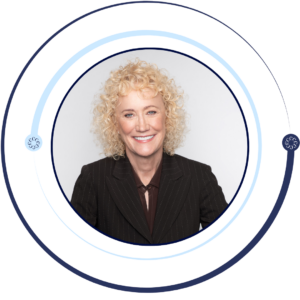 Dorrit Bern was formerly the Chairman, President and CEO of Charming Shoppes Inc. from 1995 – 2008. Charming Shoppes was a $3 billion Fortune 500 corporation and owner of brands Lane Bryant, Fashion Bug, Catherine’s Plus Sizes, Crosstown Trader catalogs, Petite Sophisticates, and Publisher of Figure Magazine. Dorrit joined Charming Shoppes from Sears Roebuck & Company, where she was an Officer of the Corporation and Executive Vice President in charge of Home Fashion and Women’s Apparel.
Dorrit Bern was formerly the Chairman, President and CEO of Charming Shoppes Inc. from 1995 – 2008. Charming Shoppes was a $3 billion Fortune 500 corporation and owner of brands Lane Bryant, Fashion Bug, Catherine’s Plus Sizes, Crosstown Trader catalogs, Petite Sophisticates, and Publisher of Figure Magazine. Dorrit joined Charming Shoppes from Sears Roebuck & Company, where she was an Officer of the Corporation and Executive Vice President in charge of Home Fashion and Women’s Apparel.
Dorrit was formerly a member of the Board of Directors at Southern Company, Brunswick Corporation, Pennsylvania Real Estate Investment Trust, OfficeMax Incorporated, the National Retail Federation and Wet Seal. She is currently a member of the board at the Foster School of Business at the University of Washington, the Jay Baker Retail Board at the Wharton School of the University of Pennsylvania, and Advisory Board Member of the Women’s Leadership Center.
Over these 25 years the Committee of 200 has provided an opportunity to meet some of the most important friends in my life. I wish I had taken the time to attend more events and make even more lasting friendships.
Cordia W. Harrington
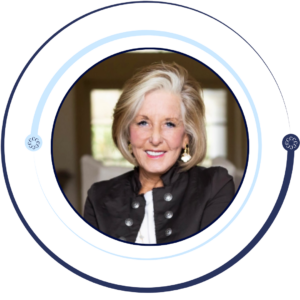 Cordia Harrington is CEO and founder of Crown Bakeries, a highly automated, high-speed baking company that makes over 15 million baked goods daily and employs more than 1,700 people, serving elite customers in the United States and the Caribbean. As CEO, Ms. Harrington guides the executive team to successful planning, business development, sales and marketing, and brand management.
Cordia Harrington is CEO and founder of Crown Bakeries, a highly automated, high-speed baking company that makes over 15 million baked goods daily and employs more than 1,700 people, serving elite customers in the United States and the Caribbean. As CEO, Ms. Harrington guides the executive team to successful planning, business development, sales and marketing, and brand management.
Ms. Harrington serves on the Global Crossing Airlines Board of Directors and the Belmont University Board of Trustees. She is the immediate past Chair of the American Bakers Association Board of Directors and past Chair of the Chief Executives Organization Board of Directors.
Under Ms. Harrington’s leadership, Crown Bakeries have received many awards, including the 50 Fastest-Growing Women-Owned Businesses, Business with Purpose Award, and Nashville Business Journal’s Best in Business Award. Ms. Harrington was listed on Forbes magazine’s list of 100 wealthiest self-made women in 2020, 2022, 2023 and 2024. C200 recognized her as an Entrepreneurial Champion with their 2024 Luminary Award. The University of Arkansas awarded her an honorary Doctor of Humane Letters degree in 2020 and named a building in her honor in 2022 (the Cordia Harrington Center for Excellence). Ms. Harrington was named Nashville Post’s 2020 CEO of the Year and was inducted into the American Society of Baking Hall of Fame in February 2018. She has been recognized by numerous other organizations for her commitment to excellence and entrepreneurial spirit.
Ms. Harrington attended Kansai Gaidai University in Osaka, Japan; she graduated from the University of Arkansas with a Bachelor of Science degree. She currently resides in Franklin, Tennessee, with her husband Tom. Together they have five children and eleven grandchildren.
As women leaders, say YES to every opportunity…whether you feel “ready” or “not”… be bold and brave and jump in and figure out how to do something you have never done…no one is ever “really ready” for that next big opportunity…just say Yes!
Our C200 friends will be there for us, all of our lives, our ups and downs…because their life is so similar…powerful women in business have a unique way of thinking, and I found “my people” with C200! I am grateful for these lifelong friendships.
Donate $25 for the Legacy Class of 2025.
Donations to C200 ensure more businesswomen have access to our quality network, Advancing Women Programs, and events. Click here to donate.
